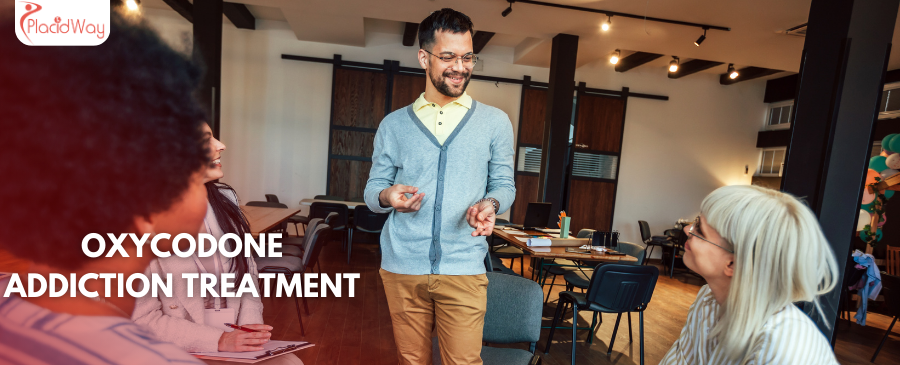
Oxycodone is a potent opioid painkiller often prescribed for moderate to severe pain. While it is highly effective for managing pain, its strong addictive potential poses significant risks. Individuals who misuse or become dependent on Oxycodone face complex challenges, requiring a comprehensive approach to treatment. This article delves into the nature of Oxycodone addiction, available treatment options, and essential considerations for those seeking recovery.
Oxycodone is a synthetic opioid medication designed to manage severe pain that cannot be controlled by other means. It is available in several formulations, including immediate-release tablets for quick pain relief, extended-release tablets for continuous pain management, oral solutions, and combination products that pair Oxycodone with other analgesics like acetaminophen. Despite its medical benefits, Oxycodone is associated with a high risk of addiction, particularly when used outside its prescribed parameters. Misuse of Oxycodone, whether by increasing the dose, using it without a prescription, or seeking its euphoric effects, can lead to severe dependency and adverse health outcomes.
|
Misuse of Prescription: Using Oxycodone in larger doses or more frequently than prescribed can quickly lead to addiction. Recreational Use: Some individuals use Oxycodone to experience its euphoric effects, which can foster dependency. Tolerance Development: Over time, the body develops tolerance to the drug, requiring progressively higher doses to achieve the same pain relief or high, which increases the risk of addiction. Chronic Pain Management: Long-term use of Oxycodone for chronic pain can result in physical dependence and addiction. Lack of Education: Many individuals are unaware of the high risk of addiction associated with opioid medications, leading to misuse and dependence. |
|
Intense Cravings: A persistent and overwhelming urge to use Oxycodone, often leading to compulsive drug-seeking behavior. Increased Tolerance: A condition where individuals require higher doses of Oxycodone to achieve the same effect, indicating physical dependence. Withdrawal Symptoms: Symptoms such as nausea, sweating, anxiety, and muscle aches when not using Oxycodone, which are indicative of physical dependence. Behavioral Changes: Noticeable changes in behavior, including neglecting responsibilities, engaging in risky activities, and experiencing mood swings. Physical Indicators: Observable signs such as constricted pupils, drowsiness, and slowed breathing that may signal misuse or dependence. Psychological Effects: Mental health issues like depression, confusion, and impaired cognitive function, which can be exacerbated by opioid use. |
|
Buprenorphine: A partial opioid agonist that helps alleviate withdrawal symptoms and reduce cravings without providing the same euphoric effects as Oxycodone. Methadone: A full opioid agonist used to stabilize withdrawal symptoms and decrease cravings, helping individuals manage their addiction in a controlled manner. Naltrexone: An opioid antagonist that blocks the effects of opioids and helps prevent relapse by reducing the drug’s rewarding effects. |
|
Effective Withdrawal Management: Medications used in MAT help manage withdrawal symptoms, easing the detoxification process and making it more bearable for individuals. Reduced Cravings: Medications such as buprenorphine and methadone effectively reduce cravings for Oxycodone, minimizing the risk of relapse. Enhanced Safety: Treatment with MAT reduces the risk of overdose compared to ongoing use of Oxycodone, thereby improving overall safety. Improved Quality of Life: Successful treatment helps individuals regain control over their lives, enhance their well-being, and restore their relationships. Long-Term Support: A comprehensive approach, including counseling and behavioral therapies, provides sustained support, helping individuals maintain recovery and avoid relapse. |
|
Prescription Opioid Users: Those who have developed an addiction to Oxycodone or other prescription opioids due to misuse or dependence. Individuals with High Tolerance: People who have built up a high tolerance to Oxycodone and require higher doses to achieve the same effect. Patients with Chronic Pain: Individuals who have been using Oxycodone for chronic pain management and have developed a dependency. People with a History of Relapse: Those who have previously attempted to quit Oxycodone but have experienced relapse and require additional support. |
|
Oxycodone Addiction Treatment Centers and Doctors Worldwide |
|
|
Oxycodone Addiction Treatment Packages Worldwide |
|
|
Country |
Average Cost (USD) |
|
Costa Rica |
$7,000 - $15,000 |
|
Mexico |
$6,000 - $14,000 |
|
India |
$4,500 - $12,000 |
|
Cuba |
$5,500 - $13,000 |
|
Medical Evaluation: Undergo a comprehensive assessment to determine if Oxycodone addiction treatment is suitable for your condition and to address any underlying health issues. Treatment Goals: Clearly discuss your treatment goals with your healthcare provider to ensure they align with your recovery objectives and expectations. Insurance Coverage: Verify your insurance coverage for Oxycodone addiction treatment, including any potential out-of-pocket expenses. Support System: Ensure you have a solid support system in place, including family, friends, or support groups, to assist you throughout your recovery journey. Treatment Plan: Understand the details of your treatment plan, including medication regimens, therapy options, and lifestyle changes that may be recommended. Expectations: Be realistic about the time required to see improvements and the challenges that may arise during treatment. Recovery is a gradual process that requires patience and commitment. Confidentiality: Confirm that the treatment facility maintains strict confidentiality and protects your privacy, ensuring a safe and secure environment for recovery. |
Book an appointment today to explore your treatment options and take the first step toward a healthier, addiction-free life. If you or a loved one is grappling with Oxycodone addiction, seeking professional help is a critical step towards recovery. PlacidWay Medical Tourism can connect you with top Oxycodone addiction treatment centers and specialists worldwide. Let PlacidWay guide you through the process and help you find the right treatment tailored to your unique needs.